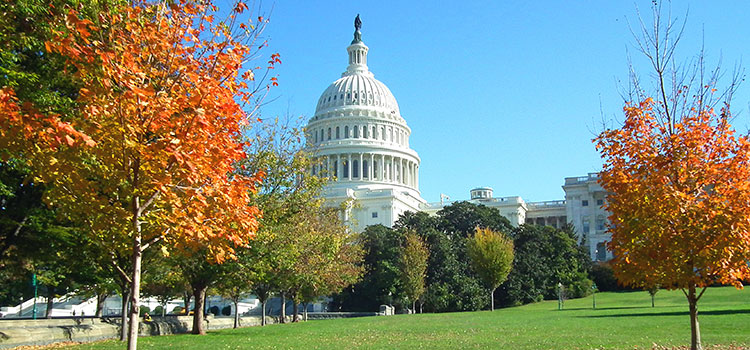Despite the federal government’s unwillingness to reschedule cannabis, or actively advance legislation to decriminalize its possession, some policy experts and lawmakers believe that Congress is, in fact, leaning toward federal decriminalization. It could happen as soon as next Congress to sometime within the next decade, according to an Atlanta Journal-Constitution report.
Michael Collins, director of national affairs for the Drug Policy Alliance said lawmakers now reach out to him following the passage of the 2014 law that restricts federal authorities from interfering in state medical marijuana programs. He says having lawmakers knocking on his door is “a big change” from just two years ago.
This year, nine states will vote on marijuana policy changes — five recreational measures, and four medical measures. Oregon Democrat Rep. Earl Blumenauer suggests that if several of those initiatives pass, “the floodgates will open.” Even without those nine states, the majority of states already have some form of legalization, be it medical or recreational.
“This is the year the issue crests,” he said in the report.
A 2015 Gallup poll found that 58 percent of Americans support cannabis legalization, up from 36 percent a decade earlier. Dana Rohrabacher, a Republican House member from California, said those polls — paired with studies that show opioid use to be down in states with legal cannabis access — are destined to increase conservative-member support in Congress.
“More Republicans are beginning to understand that, at least on medical marijuana, they are totally out of sync with their constituents,” he said.
Some high-profile Democrats, though, are still staunch prohibitionists, including Florida Rep. Debbie Wasserman Shultz and California Sen. Dianne Feinstein. However, both of those states represented by the anti-legalization Democrats have policy reform initiatives on the upcoming ballot which polls show are popular and expected to pass.
If the initiatives run the table in November it will be difficult for lawmakers to ignore the trend, and perhaps force them to enact federal reforms in much less than 10 years.
